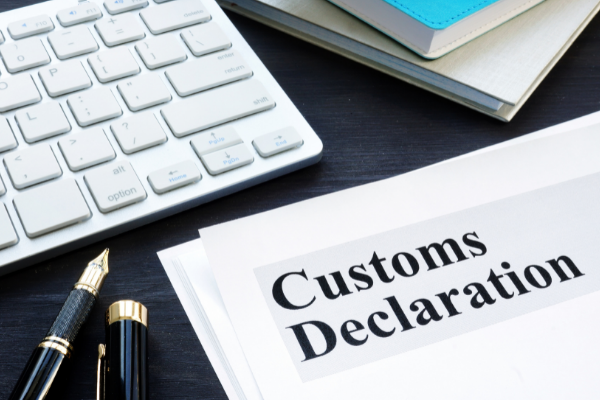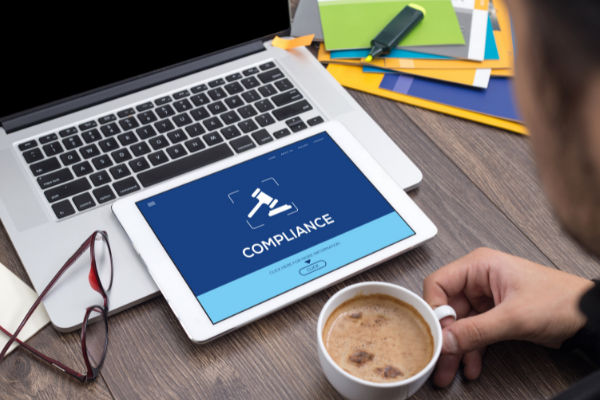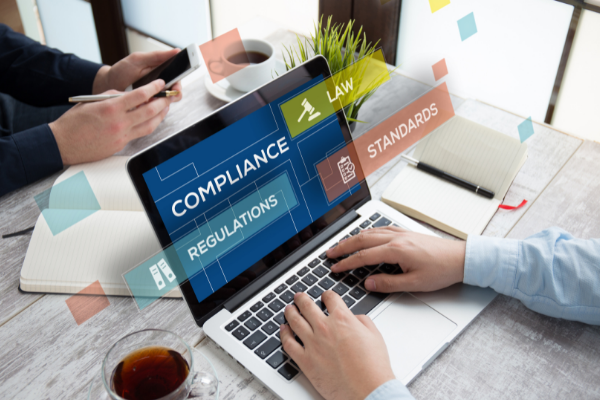BY:
SHARE:

HMRC has issued detailed instructions on how to manage the declaration of export licenses on the CDS after discovering issues impacting the data flow between the CDS and the DBT SPIRE/LITE (licencing) system. This has prevented exports from progressing to a ‘cleared’ export state on the CDS.
The update highlights an important temporary issue between CDS, the Customs Declaration Service, the Department for Business and Trade Licensing systems, SPIRE (Shared Primary Information Resource Environment), and the replacement LITE (Licensing for Industry Trade and Enterprise).
The update highlights the importance of ensuring the exporter’s license is declared to HMRC. Exporters may use a third party, such as a Customs Broker, Freight Forwarder or Fast Parcel Operator, to complete their Customs declaration under Indirect or Direct Representation. Alternatively, the exporter could choose to submit their own declaration under self-representation.
The mechanics of completing a Customs Declaration have changed due to the migration from CHIEF to CDS. A strategic goods license, such as an OGEL (Open General Export License) or SIEL (Standard Individual Export License), is declared with the appropriate document, in CDS Data Element 2/3.
CDS Volume 3 provides details on how to Complete an Export Declaration, focusing on the information needed for each Data Element.
Technical Tips:
Actions when declaring an export licence in the CDS:
Do not use document status code EE (Electronic Exhausted) or ES (Electronic Surrendered) on CDS (DE 2/3) unless you wish to exhaust or surrender the licence.
Licenses that are unintentionally exhausted or surrendered during the declaration phase of export can cause serious future delivery problems for businesses with a balance of goods to export against that licence.
Instead, use the document status code EP (Electronic Partial). This will confirm that the license will remain active after the declaration.
If the document status code EE or ES has been used in error, the license presented will have been declared as exhausted or surrendered.
If this is the case, contact will need to be made with HMRC using this link: Report a problem using the Customs Declaration Service - GOV.UK (www.gov.uk)
Before submitting a declaration that includes an export license:
Declarants must make sure that the details within Data Element 2/3 (DE 2/3) have been completed correctly before the declaration is submitted as follows:
- Quantity for the license must not be zero, except where you wish to delete an existing reservation, in which case zero is accurate.
If no reservation exists, an issue will occur if the license is set at zero.
In this event, the declaration cannot be amended or deleted, and a new declaration will need to be prepared.
2. The measurement unit for the quantity must match the measurement unit associated with the license.
3. If a document status code applies, the same document status code must be used for all goods items in the declaration.
What to do if an error is made and the declaration has been registered
- If there is a discrepancy with DE 2/3, as described in points 1 to 3 above, the declaration will remain stuck in a ‘received' state.
- Additionally, if goods have been ‘arrived’ at the frontier, the CSP/carrier will not receive any response notifications, and your goods will not gain P2P (permission to progress)
At this point there may be notification of an issue by the carrier, and further action may be necessary.
- Do not attempt to amend the declaration, as this will not rectify the issue and could cause the license usage to be stored incorrectly.
- Instead, invalidate the declaration and submit a new declaration using the same DUCR (if software allows) and a new LRN.
Note for further action:
- If goods have been consolidated into a Master Unique Consignment Reference (MUCR) when the declaration is invalidated, the Declaration Unique Consignment Reference (DUCR) may not auto-disassociate from the MUCR.
- If using the same DUCR, arranging for the DUCR to be associated with the MUCR may be necessary. If the DUCR/MUCR has already arrived, the carrier may need to re-arrive it to trigger the relevant permission to progress messages (P2P).
- Careful liaison with and guidance from the carrier and freight forwarder/ intermediary may be necessary.
- If an attempt has been made to amend a declaration with a license error, the declaration will remain in a ‘received’ state and not progress to ‘registered’ or ‘accepted.’
In this instance, a new declaration will be necessary, and a correction will need to be applied to the license reservation by contacting HMRC here: Report a problem using the Customs Declaration Service - GOV.UK (www.gov.uk)
What to do if you have a declaration rejected due to an incorrect licence EORI (CDS70740)
This error will occur if an EORI is attributed to the license that is not the exporter’s EORI (the licensee) on the declaration: The EORI used on the declaration must match that of the EORI on the license application.
Contact with HMRC will be necessary to request that a correction be applied: Report a problem using the Customs Declaration Service - GOV.UK (www.gov.uk)
HMRC and the DBT are working to resolve the disjoint between the HMRC processes and the DBT licence records. They have asked that the measures above be considered carefully when declaring an export license and that the temporary measures be used until these matters are resolved.
The Notice To Exporters 2024/12 can be found at the link below:
NTE 2024/14: customs declaration service (CDS) - exhaustion in error guidance - GOV.UK (www.gov.uk)
If you are interested in exploring this topic further, you might find it worthwhile to consider the training courses and live clinics offered by Strong & Herd LLP:
OneCall™ Email assistance as and when required; A one-call solution for all your import, export and customs enquiries. Export help. Import help. Customs help.
Stay informed about customs and international trade matters by subscribing to our OneCall™ service. This comprehensive offering includes a dedicated email helpline for support, timely practical updates direct to your inbox (Did You Know?), monthly UK Customs & Trade Briefings and access to an interactive members' area with an exclusive community for our subscribers.
International Trade Updates & Spotlight Newsletter
Subscribe to our free information emails covering international trade topics...













